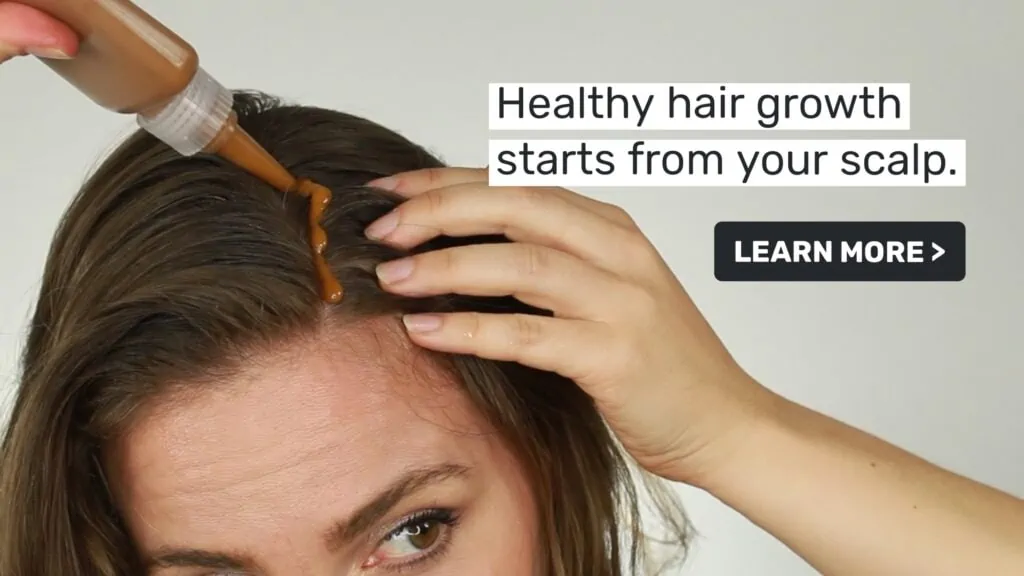March 2021 is marked as Endometriosis Awareness Month, so we shed light on a less known aspect of this condition: hair loss and hair thinning. Endometriosis is a serious health issue faced by many women, and it can also indirectly cause hair loss. Women have enough on their biological plate, and so while hair loss or hair thinning might seem like a primarily man’s problem, hair forms an inherent and undoubtedly an important part of woman’s identity. Hair thinning cannot be struck off as simply an inconvenient side effect of this already difficult condition.
Endometriosis is an often painful disorder in which tissue similar to the tissue that normally lines the inside of your uterus — the endometrium — grows outside your uterus. Endometriosis most commonly involves your ovaries, fallopian tubes and the tissue lining your pelvis. Rarely, endometrial tissue may spread beyond pelvic organs.
Whilst it can affect women of almost any age, mostly affects those of child-bearing age and between 25 and 35 years old. Common signs and symptoms of endometriosis include:
- Painful periods (dysmenorrhea). Pelvic pain and cramping may begin before and extend several days into a menstrual period. You may also have lower back and abdominal pain.
- Pain with intercourse. Pain during or after sex is common with endometriosis.
- Pain with bowel movements or urination. You’re most likely to experience these symptoms during a menstrual period.
- Excessive bleeding. You may experience occasional heavy menstrual periods or bleeding between periods (intermenstrual bleeding).
- Infertility. Sometimes, endometriosis is first diagnosed in those seeking treatment for infertility.
- Other signs and symptoms. You may experience fatigue, diarrhea, constipation, bloating or nausea, especially during menstrual periods.
Endometriosis-induced stress and hair loss
The stress caused by the physical pain brought on by the condition could contribute to excess hair shedding, a condition known as telogen effluvium. Especially since the pain occurs regularly with each menstruation, your body starts anticipating and preparing for it. Therefore the nutrients and “resources” that your body needs to support, amongst other functions, hair growth – would be diverted to a response to elevated levels of cortisol and making sure that your body can handle that discomfort. Since hair growth is not one of those crucial, life-supporting functions, your body would dial down its attention to it during endometriosis flare ups.

Regular flare ups are “just” one thing. But in addition, long term physical pain associated with ovulation, adhesions, pelvic inflammation, bowel movements, urination, and pain during general bodily movement, is likely to impart a great deal of stress. Normal hair loss is thought to be about 100-150 hairs a day, but physical and mental stress associated with the condition may prematurely force a greater number of hairs than normal to fall out.
When it comes to managing the levels of stress associated with endometriosis, tackling it laterally: e.g. meditation practice, exercise, therapy and taking a of rest during the flare ups – often results in a wholesome and rounded approach. You want to reduce the stress associated with the pain and fatigue as much as possible, to minimise negative effects on your hair growth, too. Knowing and understanding your cycle will help to make a mental (or an actual note!) in your calendar that you will need to be extra patient with yourself during those times. Joining a support group or getting qualified help from a psychotherapist to help build mental resilience and patience with oneself can help you navigate these stressful periods, calm your body and through a trickle-down effect reduce the need for its protective instinct to reduce resources availalbe for hair growth.
Hormonal disbalance and endometriosis medication
Elevated levels of estrogen during pregnancy lead to significant improvement in hair growth and thickness in some women. So endometriosis with its elevated levels of estrogen as a side effect, should by all logic – lead to better hair. However, in addition to the stress factors described above, some medications that are used to treat endometriosis list hair loss as a side effect – affecting an already disturbed hormonal landscape.
For example Danocrine, or Danazol is a progestogen which can lead to masculinised traits, including increased facial and body hair, and thinning hair on scalp or hair loss. Lupron or Leuprorelin, a drug commonly prescribed for treatments of endometriosis, inhibits the production of estrogen, a female sex hormone that enables endometrial gland growth. Reduction in estrogen inadvertently can lead to hair thinning and hair loss as the hormone balance becomes disturbed to the dominantion of androgens.
In most cases, the consumption of these medicines is considered as a temporary cause of hair loss. Once medication is stopped the hormones return to its previous state, but so can the condition itself. You should always consult your physician before starting or ending your prescribed medication.

Dealing with hair thinning and endometriosis
If the reason for your hair loss or thinning is due to medication – your hair issue becomes something that you need to manage on an on-going basis, rather than solve outright. Thus, getting all the other parts of the equation right, to outweigh the negative effects of the hormonal disbalance can help you do that. Techniques like scalp massages, balanced nutrition plan, regular exercise are factors. To provide localised support to your scalp affected by excess levels of androgens, addressing blood flow becomes key. In addition, to combining both, a ritual of self-care to help you tackle stress and support to your scalp blood flow might just be the best combination.
Who we are:
The Hair Fuel is an all-natural hair growth mask created by Laura Sagen, who lost a third of her hair after a terrible visit to a hairdresser while suffering from a life-long condition of PCOS associated with androgenic hair thinning. She developed the formulation rooted in the science of scalp blood flow, which has become The Hair Fuel growth mask. Since then, her company has helped thousands of people like you to start growing healthy hair.
We work closely with our lab and manufacturers to ensure the highest quality product. But a product alone is never enough – so we hold your hand throughout your own, unique hair growth journey. Our flagship product, The Hair Fuel mask coupled with tailored advice, digital tools, and online support is there to help you grow the best hair you can. It’s a big claim – but we’re unafraid to make it. Check out our starter bundles >>
Sources
The Role of Estrogen in Endometriosis (1)
Estrogen metabolism and action in endometriosis (2)
Endometriosis, National Institute of Child Health and Human Development (3)
